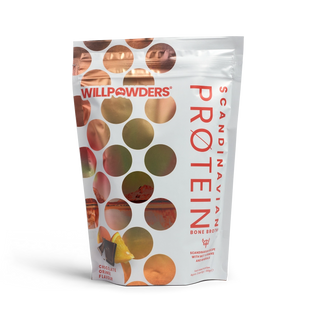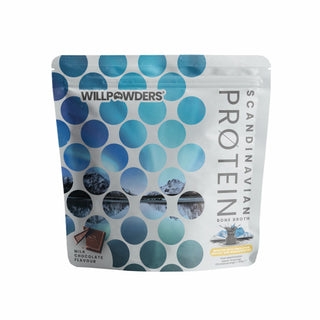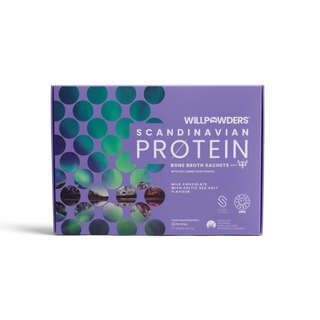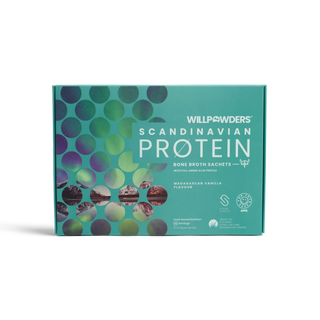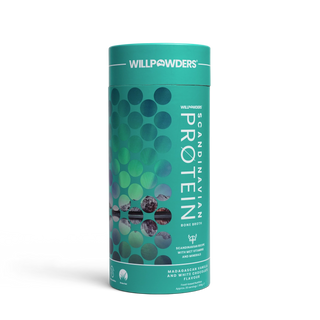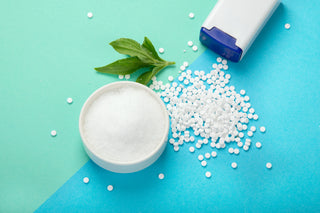
Hack Your Hormones
The Sweet Truth - is Stevia all it Cracked up to be?
Stevia, a natural sweetener derived from the leaves of the Stevia Rebaudiana plant, has gained popularity in recent years as a healthier alternative to traditional sugar. Despite its widespread use, concerns have been raised regarding its safety, particularly stemming from negative trial data obtained from animal testing. However, it remains WillPowders’ sweetener of choice and here’s why…
Human Safety Studies
One comprehensive review published in the journal Regulatory Toxicology and Pharmacology analysed data from 11 human studies and concluded that stevia is safe for human consumption, even at high doses. The review found no adverse effects on blood glucose levels, blood pressure, or other health parameters.
Furthermore, regulatory agencies around the world, including the Food and Drug Administration (FDA) in the United States and the European Food Safety Authority (EFSA) in Europe, have evaluated the safety of stevia and deemed it safe for use as a sweetener.
Animal Testing Concerns
While some negative trial data has emerged from animal testing, it's essential to interpret these findings within the context of human consumption. Animals metabolise substances differently from humans, and what may be harmful to animals doesn't necessarily translate to human health risks. I mean, it’s just common sense, really.
Additionally, the doses administered in animal studies are often much higher than typical human consumption levels, which can skew results and lead to misconceptions about safety. Human studies have shown that the levels of stevia consumed in everyday use are well below the doses that demonstrated adverse effects in animal studies. It makes you wonder why on Earth animals are given far higher doses when it doesn’t reflect real life consumption levels. It’s a bit like making a human being drink a swimming pool full of vodka to see what happens…I mean, I can guess, can you?
Don’t just take our word for it! If you’re still not convinced, there are a plethora of studies that highlight the safety of stevia and information that explores how the HUMAN body responds to this gift from nature which you will find at the end of this blog.

With that being said, how does stevia impact the human body?
Whilst losing weight is often a side effect of finding your WillPowders Way, and in this case, swapping out sugar for stevia can make weight loss goals a reality, we’re more concerned about the effects on the body as a whole because without a healthy gut, heart and stable blood sugar levels, losing weight can evade us and potentially catapult us into a life of habitually finding comfort in food that doesn’t serve us. If the pounds don’t start shedding, we give up and revert back to our old ways in a sugar ladened heartbeat. Luckily, stevia offers a naturally sweet alternative that won't tip the scale or harm our internal health.
Blood Sugar Regulation
One of the most intriguing aspects of stevia is its potential to help regulate blood sugar levels. Research suggests that stevia may have antihyperglycemic effects, meaning it could help lower blood sugar levels in individuals with diabetes or insulin resistance. By stimulating insulin production and improving insulin sensitivity, stevia may offer a sweet solution for managing blood sugar levels.

Heart Health
In addition to its impact on blood sugar, stevia may also benefit heart health. Some studies have shown that stevia could help lower blood pressure, which is a significant risk factor for heart disease. By promoting vasodilation and reducing inflammation, stevia may support cardiovascular health and contribute to a healthier heart.
Skewed Trial Data
The recent scare mongering that has littered our news feeds, suggesting that consuming natural sweeteners like stevia is a death sentence or puts you at risk of an immediate heart attack are not helpful, especially when ‘the results “should not be extrapolated to the general population, as the participants in the intervention were already at increased risk for cardiovascular events,”’ (Dr Ed Rankin). The truth is, the study was conducted on mainly men in their 60s and 70s who were already at risk for heart disease. A further 1,157 blood samples in people at risk for heart disease were collected between 2004 and 2011 and the findings were corroborated by further animal testing, not healthy human testing, animals, which, if past animal testing is anything to go by, may have been given far higher doses than any human would ever consume. It’s just not as cut and dry as we’re led to believe. In fact, in another trial, ‘no significant changes in mean arterial pressure or heart rate were observed after a daily intake of 1000 mg in healthy individuals who were normotensive or having low normal mean arterial pressure’.
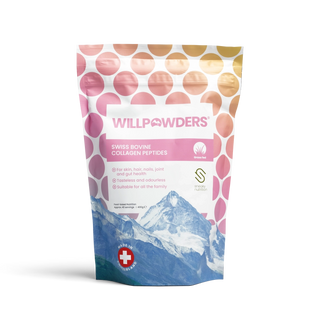
Gut-Friendly Sweetness
At WillPowders, we prioritise gut health and have formulated a range of products to support your gut microbiome. Why? Because it is the epicentre of all health and without a healthy gut, encouraged by our Collagen and Protein Powders, nothing else works to its potential. Therefore, the last thing we would do is suggest or use a product that could adversely impact your gut health.
Unlike artificial sweeteners, which can wreak havoc on our digestive system, stevia is gentle on the gut. It passes through the digestive tract without being broken down, making it an excellent option for individuals with sensitive stomachs or digestive issues. Plus, its natural origin means you can enjoy sweetness without worrying about artificial additives or chemicals.
Recent research has shed light on the intriguing relationship between stevia consumption and the gut microbiome, the complex community of microorganisms that reside in our digestive tract and play a crucial role in our overall health.
Prebiotic Potential
Prebiotics are non-digestible fibres that serve as fuel for beneficial bacteria in the gut (probiotics). Some studies have suggested that certain components of stevia, such as stevioside and rebaudioside A, may act as prebiotics, promoting the growth of beneficial bacteria like Lactobacillus and Bifidobacterium. By nourishing these "good" bacteria, stevia could potentially contribute to a healthier gut microbiome and support digestive function.
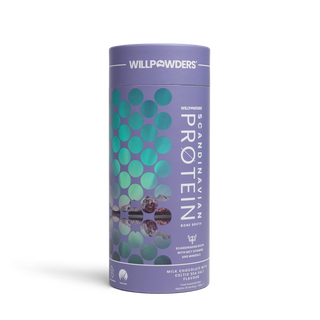
Stability in the Gut
Unlike some artificial sweeteners that can disrupt the balance of the gut microbiome, stevia appears to be stable and non-fermentable in the digestive tract. This means that it passes through the gut without being broken down by bacteria, which could help maintain the overall balance of the microbiome.
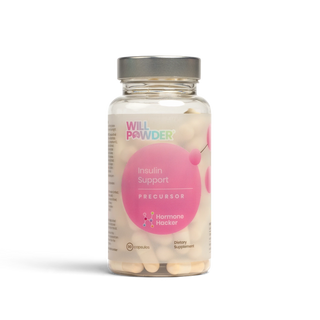
Hormone Health
In recent years, concerns have been raised about the potential effects of stevia on the endocrine system. Some animal studies have suggested that stevia may disrupt hormone levels and interfere with endocrine function, leading to speculation about its safety for human consumption. And we get it! Our hormones really have the power to derail us, but given that WillPowders have worked tirelessly to educate and formulate natural products that support the hormone health of men and women we really must urge you to examine these claims critically and understand the limitations of animal testing when extrapolating to human health. At the end of the day, we’re the last people on the planet that would suggest you consume anything that could potentially harm your hormonal balance.
Human vs Animal
Remember, one of the most significant limitations of animal testing in this context is the inherent differences between animal species and humans. Each species metabolises substances differently, and what may affect hormone levels in animals may not have the same impact in humans. Many animal studies investigating the effects of stevia on the endocrine system use extremely high doses that far exceed typical human consumption levels. These doses are often chosen to elicit a response and may not reflect realistic dietary intake. As a result, the relevance of these findings to human health is questionable, as humans are unlikely to consume such high levels of stevia in everyday life.
While some animal studies have suggested potential adverse effects of stevia on the endocrine system, the results are not consistent across all studies. There is a lack of consensus in the scientific community, with other studies reporting no significant impact on hormone levels or endocrine function. In fact and in contrast to animal studies, numerous human studies have been conducted to evaluate the safety of stevia consumption, including its effects on the endocrine system. These studies have consistently shown that stevia is safe for human consumption, even at high doses without turning you into a ragey lunatic or impacting your hormone harmony.
Antioxidant Properties
Finally, stevia isn't just sweet—it's also packed with antioxidants. Antioxidants help protect our cells from damage caused by free radicals, which are unstable molecules that can contribute to ageing and disease. By incorporating stevia into your diet, you may boost your antioxidant intake and support overall health and wellness.
We totally get how confusing it can be when the news, media and influencers with half a story claim something is bad for you. It can be terrifying and make you question everything you thought you knew. However, remember, at the heart of what you are fed through socials - Big Food and Big Pharma lurk, and whilst we don’t mean to sound like conspiracy theorists, it’s important that you do your due diligence, you question the media diet that you are getting and you consider why you are being told what you’re being told.
More Blogs

An Ode to the Teacher, Parent and Child During this Exam Season.
A tale about why and how your child, your teacher friends, or even you as a parent of exam aged children might benefit from WillPowders this exam season. Allow me...
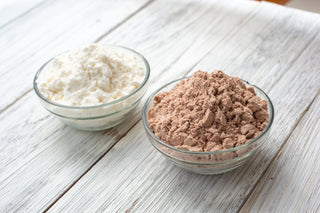
How WillPowders Protein Powder Saved Mine and My Son’s Life!
In the epic battle between parents and the insatiable appetites of their offspring, the quest for a healthy diet can seem like a Herculean task. Armed with broccoli and kale,...
Disclaimer
Our blogs are written with love in the hope that they go some way in helping you feel like the rockstar you are, and whilst we do our due diligence, research like maniacs and fact check our stuff, we know everyone’s journey is different. They are intended to educate and empower you, not usurp medical advice. We would never advise you to stop, adjust, or modify any prescription medication without the direct supervision of your healthcare practitioner, but don’t be afraid to talk to your doctor about your new found knowledge, brought to you by the marvels of nature because they don't know everything! Blogs are always informed by Davinia but often written by a member of the team. Not all blogs reflect Davinia's experiences and sometimes provide alternative perspectives

